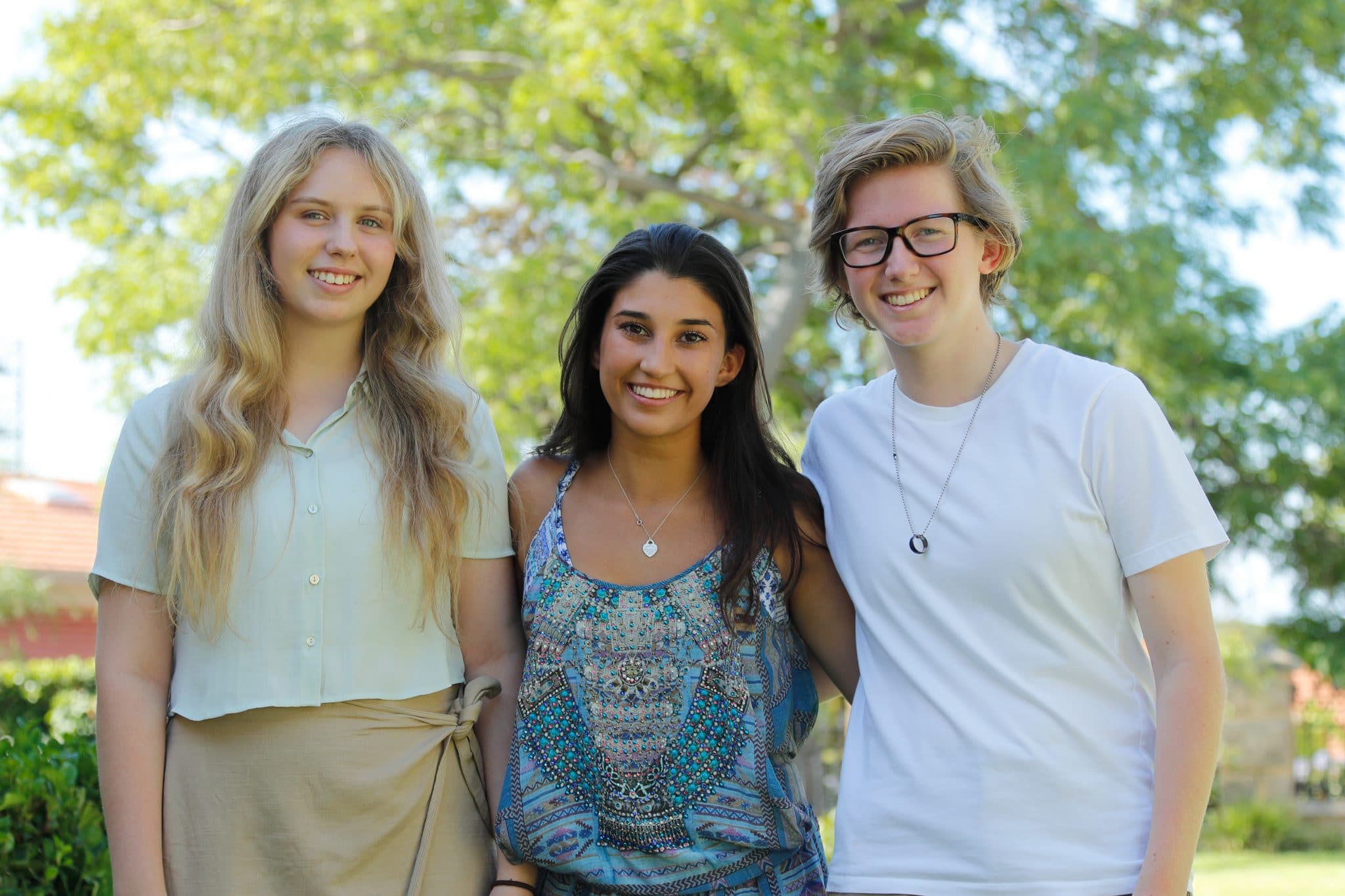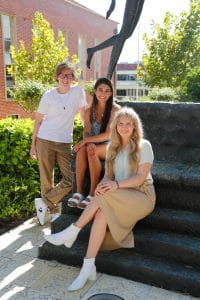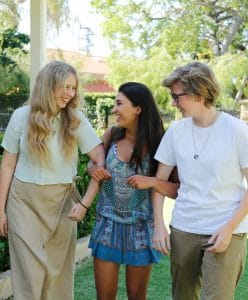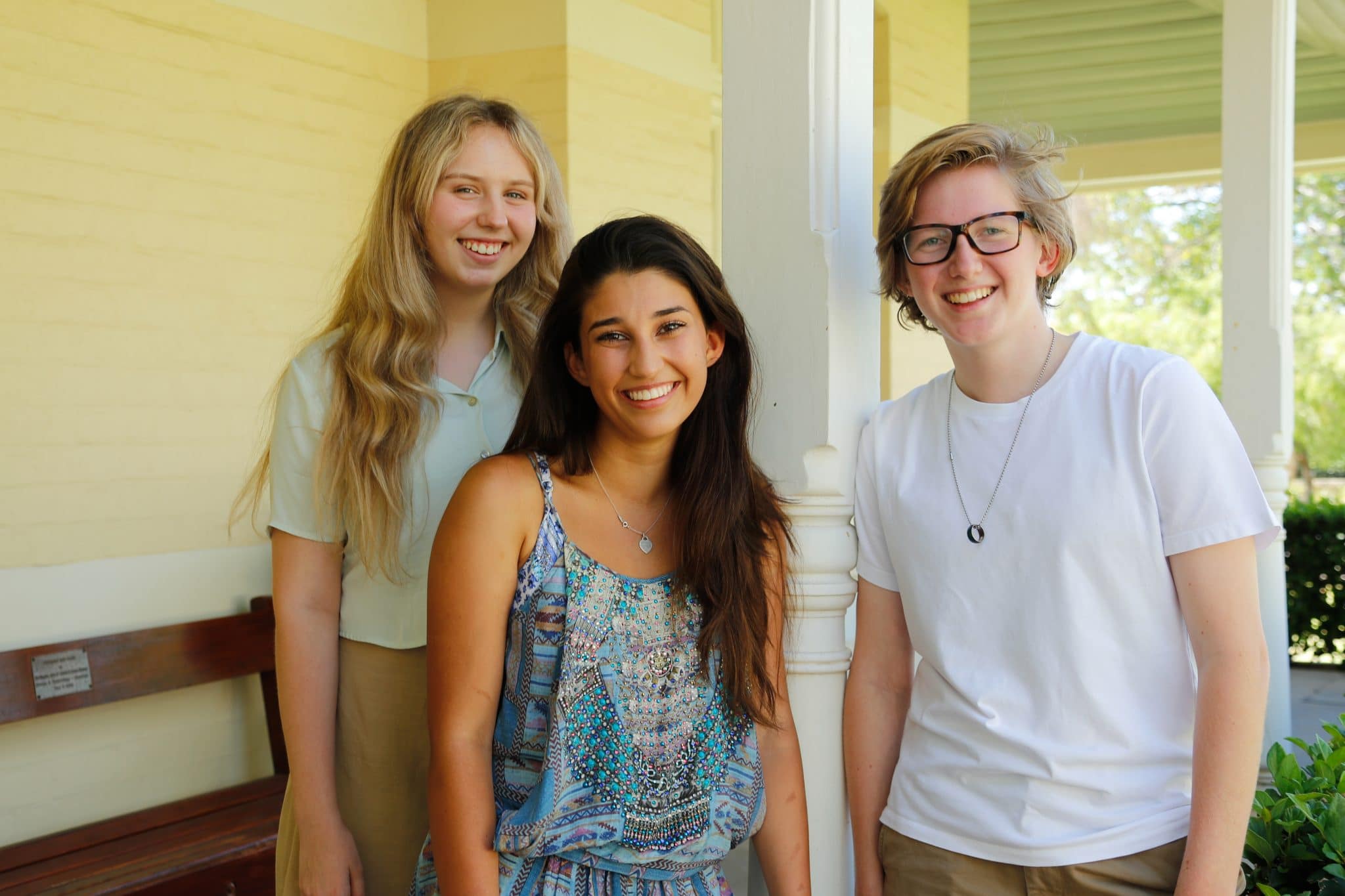Not even a global pandemic, which caused countless disruptions to the 2020 academic year for students, could restrain PLC’s brightest from achieving terrific results in the International Baccalaureate (IB) Diploma Programme.

The IB, as it is affectionally known, is a global-minded alternate study pathway to that of the Western Australian Certificate of Education (WACE).
Only two schools in the Perth region offer the IB and in 2020, three students, Tahlia Hanikeri, Elizabeth Crawford and Isabelle Hamer, achieved ATAR equivalent scores of 98 or above.
PLC sat down with Tahlia (middle), Elizabeth (right), and Isabelle (left) to discuss their IB journey, exams, and what the future holds for them.
PLC – Why did you decide to do the IB instead of WACE?
Elizabeth – I chose IB because I valued the internationally-minded curriculum that the IB focuses so heavily on. Also, at the very core of the IB, it aims to make well-rounded students by incorporating things like Theory of Knowledge (ToK) and Creativity, Activity and Service (CAS) on top of the standard curriculum – which was something I was really interested in. It was also a bit of a leap of faith; I wanted to really challenge myself academically and as a whole.
PLC – How do you think the IB differs from the WACE?
Tahlia – Students must select a subject from every subject area including a foreign language and each of these subjects count towards your final IB score – not just your best four subjects.
Elizabeth – The IB puts students in a very unique situation compared to what WACE offers as an internationally focused curriculum underpins every aspect of the programme. As the IB isn’t just for Australian students, every subject has such a wide coverage on many different international issues. I think this really equipped me well for going into a world which is becoming increasingly connected.
I also think the IB aims to be more analytical than most curriculums. As a two-year programme, it focuses on making sure students understand the concepts, can play with ideas, and really mess around with the permutations of that knowledge – not just rote learn. The exams don’t want you to spit out answers or dates, they want to see your take on different ideas, let you make your own opinion and argument.
How did you find the whole IB experience?
Elizabeth – I loved it. It would be a lie to say that I loved every second of it – there were some really difficult times when I was really stretched to my limit – but as a whole, I’ve come out of the IB Diploma Programme a completely different person. It’s made me more self-assured, more independent and so much more passionate about learning.
Tahlia – I really enjoyed the IB experience, despite its challenges. I feel as though it allowed me to grow as both a student and person. You need to be very disciplined and organised to not fall behind. Time management is crucial.
How did you find the exam period?
Elizabeth – As stressful as it was – I really loved the exam period. After mocks, I think all of the IB girls became a lot closer knit and during finals we all banded together to support each other and it made it so much more bearable.
 What have been some of your highlights during your PLC education?
What have been some of your highlights during your PLC education?
Isabelle – Looking back, I’d say my main highlight and fondest memories were just being with my friends each day, however, an experience that really stands out to me is when I went on exchange to the UK in Year 10. I made a lot of lifelong friends and it was really interesting being in another school where they also do the IB. I also really enjoyed the Co-curricular activities I had access to such as debating, mock trails, chorale, and pipe band.
What does the future hold for you?
Tahlia – In February, I will be travelling to Canberra to attend ANU where I will be studying a double degree of a Bachelor of PPE (Politics, Philosophy and Economics) and a Bachelor of Law (Honours).
Isabelle – I’ve accepted the Fogarty Scholarship to UWA, and I am going to study the Bachelor of Philosophy and major in Politics, Philosophy and Economics.
Elizabeth – I’m studying Law and International Relations at ANU in Canberra, which I’m incredibly excited for.
How do you feel the IB has prepared you for whatever may come next?
Elizabeth – The world is always changing and become more and more connected every day. I think the IB has made me aware of this to a large extent, and it has also helped me think big in terms of my individual capacity to make significant changes. The IB had helped me think and dream big.
 Where do you see yourself in five years?
Where do you see yourself in five years?
Isabelle – In five years time, I plan to be doing my postgraduate degree (most likely in law) in England.
Elizabeth – I hope to use my degree, and my experience at PLC, to go into diplomacy or another internationally-focused field of work. However, due to my passion for learning, I think I will be drawn back to the field of education. I can see myself working to develop the Australian education system in some capacity.
Back to news list

 What have been some of your highlights during your PLC education?
What have been some of your highlights during your PLC education? Where do you see yourself in five years?
Where do you see yourself in five years?